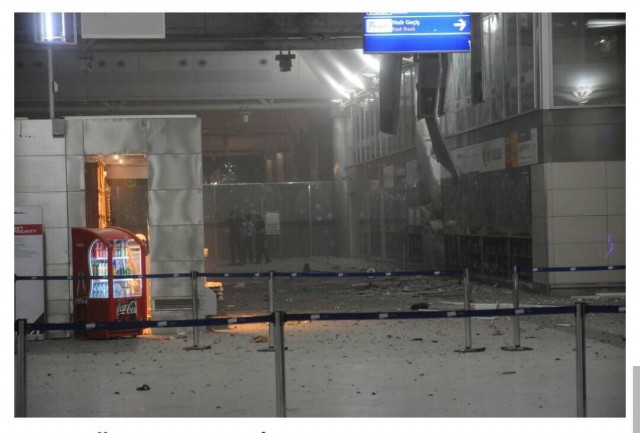The Turkish bombing
There are at least 41 dead and reportedly 140 injured in a gun-and-bomb attack on Istanbul’s Ataturk airport

A view of the entrance of the Ataturk international airport after two suicide bombers opened fire before blowing themselves up at the entrance, in Istanbul, Turkey June 28, 2016. PHOTO: 140journo/REUTERS
Turkey is a country that has in the last decade become exposed to increasing levels of terrorist violence, some from home-grown groups such as Kurdish separatists and in the last five years as the spillover from the Syrian civil war. Tourism has declined, the economy suffered and the political polarities make it a deeply divided country. Violence between the PKK and government forces has increased dramatically in the last year after the collapse of the ceasefire, and hundreds of Turkish forces have been killed fighting the PKK. There are reports from across the country of a generalised sense of insecurity and attendance at the principal mosques in large cities is reportedly thin for the holy month of Ramazan amidst fears that they may be targeted. Despite numerous raids by security forces across the country, the bombers appear to be able to go about their business. Unless Turkish security agencies can seize the initiative, this is unlikely to be anything other than one event in a lengthening line.
Published in The Express Tribune, June 30th, 2016.
Like Opinion & Editorial on Facebook, follow @ETOpEd on Twitter to receive all updates on all our daily pieces.















COMMENTS
Comments are moderated and generally will be posted if they are on-topic and not abusive.
For more information, please see our Comments FAQ